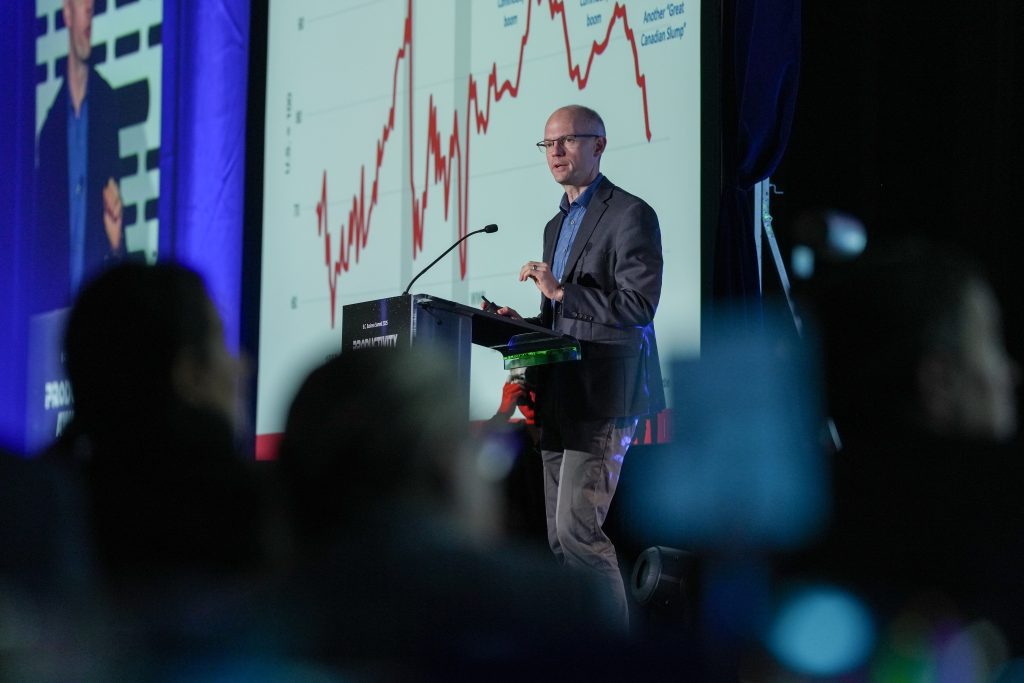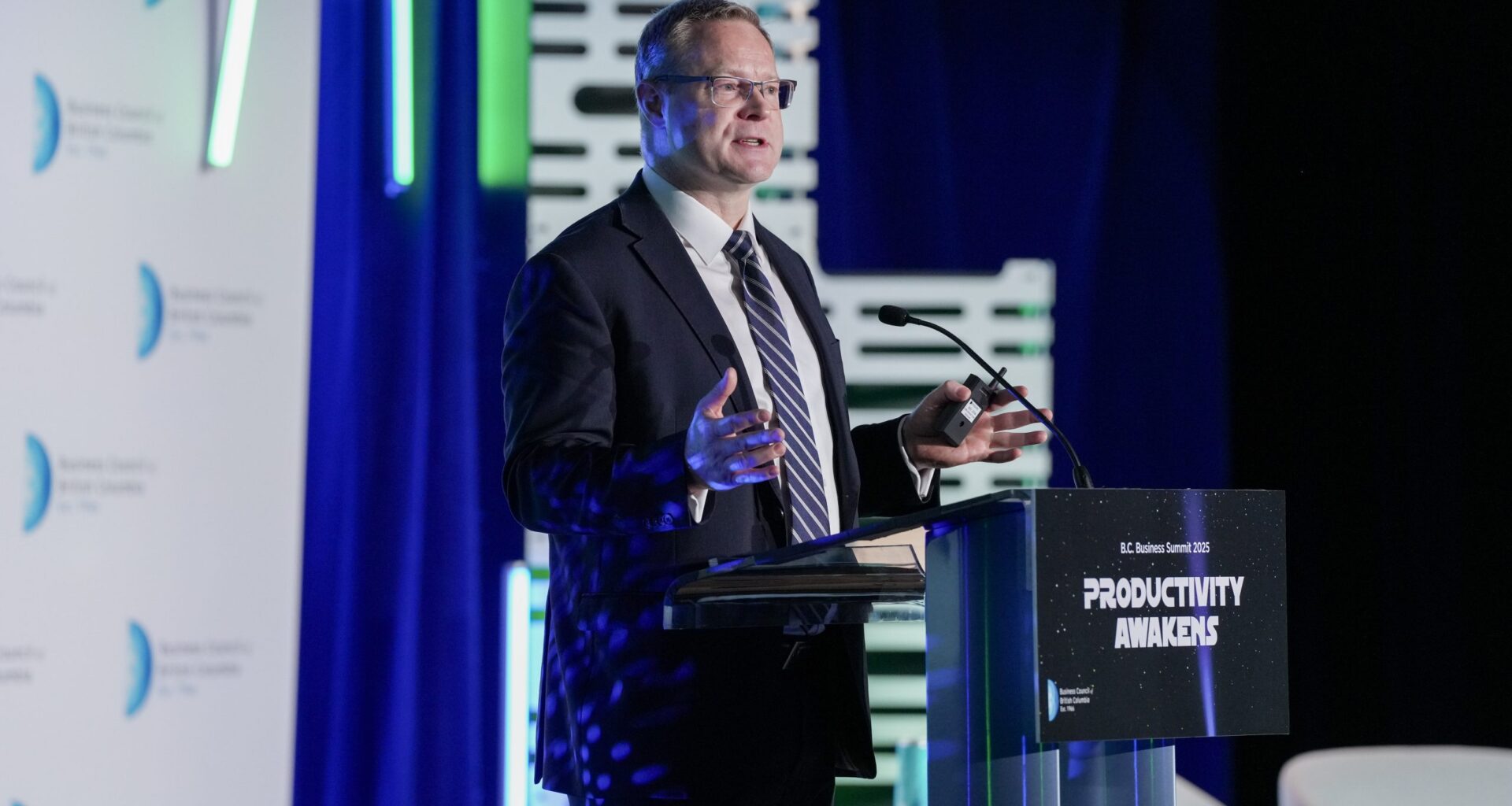The productivity fix for a new generation
At the opening of the B.C. Business Summit 2025, economists Trevor Tombe and David Williams delivered a wake-up call on Canada’s declining productivity — and the cost of complacency.
Williams, Vice President of Policy at the Business Council of British Columbia, said there’s growing awareness outside the major cities that the economy is underperforming. “In the regions, there’s an acute awareness that things are not right,” he said. “Downtown, we’re a little more in our own model. We need to connect those dots to understand what’s really going on in the Canadian economy in terms of our ability to produce more per person.”
He warned that this is no longer an abstract problem. “It acutely matters for young people,” Williams said. “They’re on the hook for a lower standard of living across their working lives and for their children.” The OECD projects Canada to have the weakest per-person growth of any of its 38 member countries over the next 40 years.
“When an economy isn’t producing more per person,” he said, “the only way to get ahead is if someone else falls behind. That’s not sustainable — productivity growth is the only way to make opportunity possible again.”
 Trevor Tombe, Professor of Economics at the University of Calgary, speaks at the B.C. Business Summit 2025.
Trevor Tombe, Professor of Economics at the University of Calgary, speaks at the B.C. Business Summit 2025.
Common sense solutions to shared prosperity
Trevor Tombe, Professor of Economics at the University of Calgary, said Canada’s geography and fragmented markets have always constrained productivity — but they don’t explain why the country has fallen further behind in the past decade. “Our markets are small and dispersed, and that naturally limits scale,” he said. “But that hasn’t worsened in recent years. What’s changed is our willingness to invest, innovate, and adapt.”
He said the fixes are straightforward but long overdue. “We need infrastructure that overcomes distance, freer internal trade that connects provinces, and a regulatory and tax environment that encourages firms to adopt innovation rather than wait for it,” Tombe said. “Our challenge isn’t invention — it’s adoption. That’s what turns ideas into prosperity.”
Higher productivity, he added, isn’t about working harder. “It’s about working smarter — investing in tools, systems, and competition so people can do more with less,” he said. “That’s what allows Canadians to work fewer hours, live better, and still grow the economy.”
Williams agreed that productivity is about fairness as much as efficiency. “This is a question of intergenerational equity,” he said. “Young Canadians need to see a path forward. Without action, they’ll be the first generation in modern times to inherit a poorer country than their parents.”
The two economists set the tone for the summit: a call to rebuild Canada’s capacity to build, compete, and grow through ambition, investment, and common sense. It’s not just a policy debate. It’s a test of whether Canada can still get it done.
Related stories

